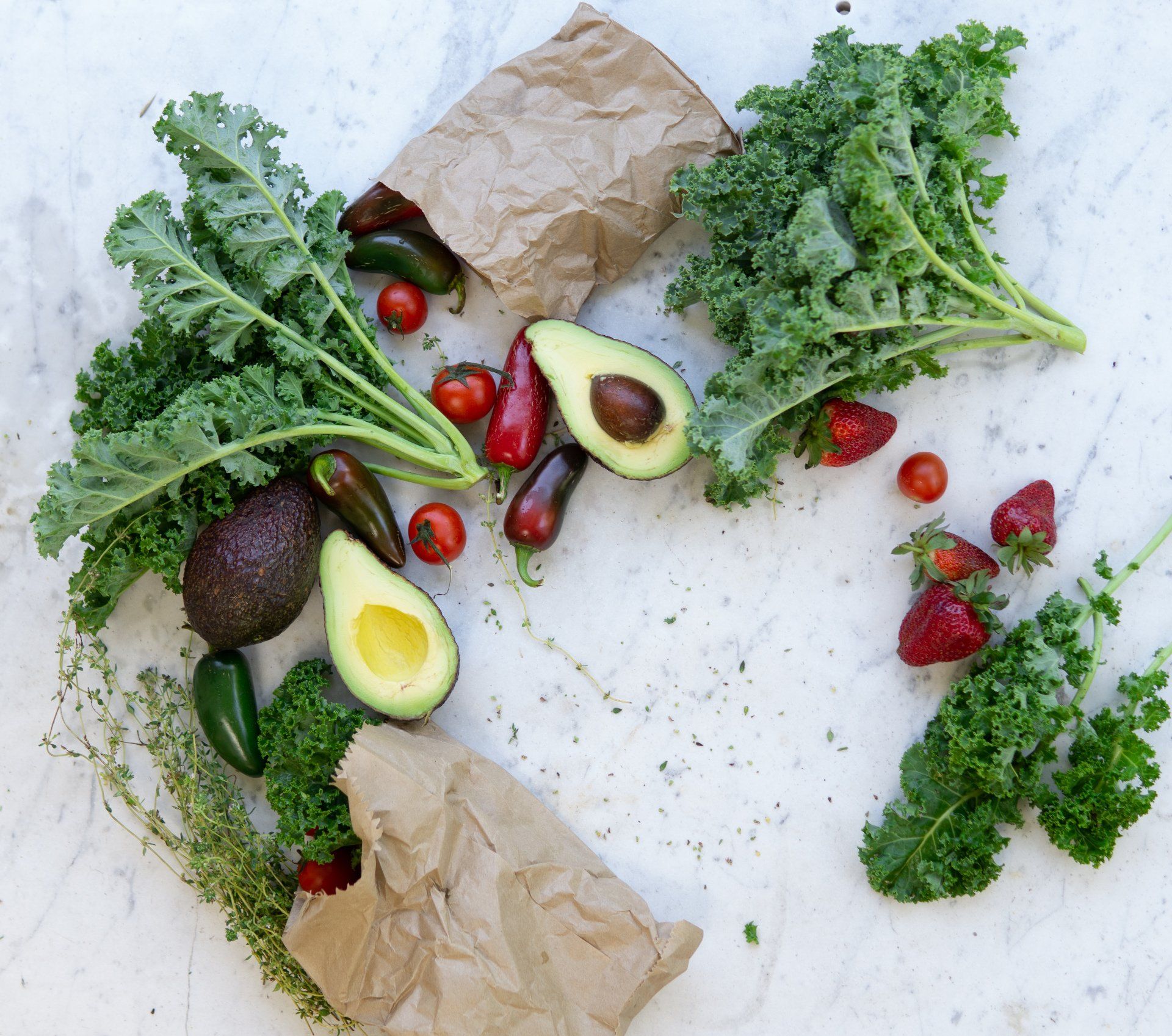Balancing Your Fertility Journey: The Surprising Link Between Gut Health and Fertility
Written By:
Kelly Lyons, L.Ac, MSOM
I often get the question, “Why do I need a probiotic?" It is easy to take a probiotic and start to develop valuable high quality and diverse forms of gut bacteria. All too often, that diversity in bacteria is lacking. Probiotics can help adjust that.
Study after study shows correlations between gut health and vital system health throughout the body. Just recently, I read an article in the Journal of Clinical Endocrinology and Metabolism that illuminates a relationship between PCOS and gut bacteria. In “Gut Microbial Diversity in Women With PCOS Correlates With Hyperandrogenism the study revealed links between PCOS and a reduction in microbiome diversity. It also showed a possible correlation between elevated testosterone in women and decreased microbiome diversity. In a follow-up study, one of the same researchers, Varykina Thackray, Ph.D., stated, “Our new results suggest that altering the gut microbiome via prebiotic or probiotic therapies may be a potential treatment option for PCOS.

What does the gut have to do with hormone balance?
Glad you asked. Hormones are metabolized in stages as they trek through the body. They travel to the liver, and then they go to the gut, where hopefully and ultimately, they are eliminated out of your system. At various points along the way, hormones can get tripped up in their metabolic process. If hormones get to the gut, and there is an unhealthy microbiome balance, they can easily get stuck there. This is one way that hormones accumulate and mess with digestion, disrupt biofeedback signaling, and slow down healthy hormone production.
I think about what probiotics have to do with Chinese Medicine a lot. Traditional diets across cultures use daily fermented foods to assist digestion. Ancient Chinese texts describe the digestive system as the earth element and the center. “The Earth permits sowing, growing, and reaping. This is a very important passage from the Shang Shu, translated by our beloved late teacher Giovanni Maciocia. You hear your acupuncturist talk often about “reducing damp" and “reducing sugary foods that cause damp accumulation". As the stomach and spleen are the origin of qi and blood, this makes sense.
If you are trying to get a certain amount of highly nourished blood moving, without hesitation, to the uterus, you need the digestive system to be on it. You need the Earth element. You need the Spleen and Stomach channels to not be overworked and bogged down.
If you are trying to metabolize hormones, whether in a natural cycle, a medicated cycle, postpartum, menarche, perimenopause, or menopause, you need your digestive tract working optimally.
Unfortunately, most of us were not raised to have a diverse palate that intuitively steers us to foods, herbs, and spices that are bitter, sour, pungent, salty, AND sweet. We mostly enjoyed sweet and salty diets. This creates an environment that appeals to certain microorganisms in the gut and discourages microbiome diversity. Did you know that there are taste receptors in the lower GI tract? So, we need to balance the flavors we eat, if we want our bodies to outmaneuver the impact of our less than healthy choices.
What does a sour food do for gut health?
Technically, it increases saliva, digestive enzyme secretion, stimulates metabolism, and encourages proper liver function. (By the way, the sour flavor falls into a TCM category with the liver and spring, so when you feel like heavy wintery foods are not working for you anymore, try adding sour foods into your menu with greens to aid in the digestive transition). Apple cider vinegar? Yes, add a splash to your lemon water in the morning, with your probiotic. It will help prep your system to start digesting. Add it to your greens, too, at lunch!
A few Examples of Sour Foods to Try:
- Berries (such as strawberries and blueberries)
- Grapes
- Tomatoes
- Plums
- Citrus (orange, lemon, lime, grapefruit, tangerines)
- Vinegar
- Some fermented foods (e.g. kimchi, sauerkraut)
- yogurt/kefir
- pickles
Note: These foods provide a mild sour taste and are generally well-tolerated during pregnancy. They're also rich in vitamins and antioxidants.
What about the taste of bitter?
Bitters increase saliva and digestive enzyme production. They enhance the movement of blood in the digestive system after meals. If you have been in our offices, you know HOW IMPORTANT it is to keep blood moving in the abdominal cavity. Bitters encourage more complete absorption of nutrients. This can protect the body from having to deal with stray food particles leaving the intestines through the bloodstream, otherwise known as Leaky Gut Syndrome. Guess what that does? It reduces damp and clears heat. Where there is inflammation, there is fluid accumulation, and vice versa. Next time you go to buy your chocolate bar, go as dark as you can and think about how beneficial that bitter is!
A few Examples of Bitter Foods to Try:
- Spinach
- Asparagus
- Zucchini
- Artichoke
- Brussels Sprouts
Pungent flavors are amazing for gut health.
These are the wildcard friends that open you up and make you laugh your eyes out! They literally open up the orifices, again, when the tendency is to contract. These are things like onion, garlic, ginger, scallions, horseradish, mustard, mint. All of these plants are known across cultures as medicine. Mint needs no introduction to my clients. It is cooling, vents pathogens, soothes the liver, motivates blood flow, and is uplifting. It is part of an essential formula in Chinese Medicine called Xiao Yao San, or Free and Easy Wanderer. Pungent flavors are medicine. Use them in your meals. A little goes a very long way.
A few Examples of Pungent(Spicy) Foods to Try:
- Peppers (red or green bell peppers, jalapeno)
- Onions
- Garlic
- Ginger
- Radishes
- Spices (turmeric, cayenne, sage, cumin, cinnamon, peppercorn, paprika)
- Herbs (Fennel, Parsley, Basil, Thyme)
Note: These foods offer a pungent flavor without the intense heat or potential adverse effects of more intense foods stronger. They can add flavor to dishes while being safe for women trying to conceive in normal culinary amounts.
Empty nutrition is robbing us of systemic health.
Non-functional food is fueling the growth of harmful bacteria that degrades gut health, leaves cells weakened, and entire body systems undernourished and in distress. And there is a lot that you can do. If you are on a mission to balance hormones, regulate a cycle, reduce bloating and promote healthy metabolism of hormones from a medicated cycle, or reduce anxiety, and you haven’t aimed your attention at your gut, start now! Take a breath, get in warrior pose, and start helping your gut be as strong as it can be. Come in and talk to us. Let us help you through it.
Exciting stories often start in very tiny packages. Microorganisms are an example of this. Our entire body is understood as an ecosystem in Chinese Medicine. I remember reading an article about salmon shortages affecting old growth trees. It said that more than 75% of the nitrogen the trees needed to thrive was provided by the remains of salmon dragged into the forest by animals. It reminded me of the human digestive system, and how reliant it is on tiny, often understudied components.
If you are not taking a probiotic, or eating fermented foods daily, consider it. If you are bloated, constipated, or experiencing brain fog and signs of hormone imbalance, come in and discuss what to do with your practitioner. Probiotics, prebiotics, functional and balancing foods, acupuncture, yoga, meditation, exercise, working with a nutritionist, and supplements can help create a healthy structure for you to take your next step forward.
Try acupuncture, nutrition, massage, and yoga during these summer months with passport savings! Pick-up a probiotic on your visit, too!
Research Links:
Pawelczyk L, Duleba AJ, Kelley ST, Thackray VG. 2018. Gut Microbial Diversity in women with polycystic ovary syndrome correlates with hyperandrogenism. J Clin Endocrinol Metab 103:1502-1511. doi: 10.1210/jc.2017-02153 https://www.ncbi.nlm.nih.gov/pmc/articles/PMC6276580/
The Endocrine Society. “Improved PCOS symptoms correlate with gut bacterial composition ScienceDaily. ScienceDaily, 23 March 2019. http://www.sciencedaily.com/releases/2019/03/190323145201.htm
Share on Social
Discuss With Us
Our Latest Resources




